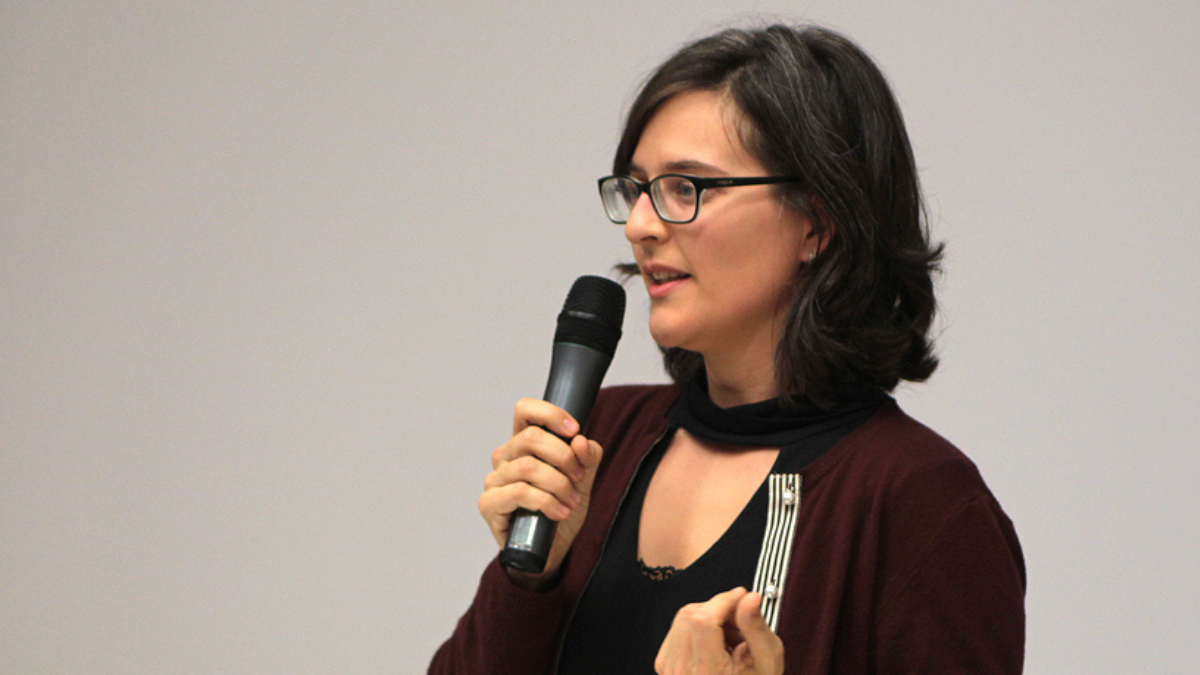
Chiara Sighele - Programme Director at OBC Transeuropa
Media-Democracy Nexus in the European Space
17 October Roma
CHIARA SIGHELE Programme Director at OBC Transeuropa
After the very insightful discussions we had so far, I would like to acknowledge the fact that to me today’s event is in itself a result of the Europeanisation of the discussion and action around the role and the situation of media freedom and pluralism in our societies.
It also gives testimony of a long path that we have undergone so far, something that should not be taken for granted, I believe.
A decade has passed since the European Commission undertook the first concrete steps to give proper consideration to the many concerns about media freedom and pluralism voiced from citizens, NGOs and the European Parliament.
In 2013 the EU High-Level Group on Media Freedom and Pluralism convened by the then Vice President of the European Commission Neelie Kroes, issued its independent report clearly pointing to the need to expand EU action for strengthening “pluralism and freedom of the media in Europe”, because not less than European democracy was at stake;
In 2013-14, the first edition of the Media Pluralism Monitor was launched by the then newly established Centre for Media Pluralism and Freedom and its transnational network of academic partners, providing the Commission with sound academic sources and data to counter the arguments that EU member states have no serious problems with media freedom and pluralism;
In 2013-14, DG Connect issued the first round of call for proposal aimed at co-funding pilot projects to allow NGOs and civil society platforms to research and develop tools to tackle these problems, and to raising awareness both on an institutional scale and publicly.
It might have taken too long for the European institutions to fully recognise the scale and urgency of the problems we are facing, as Renate Schroeder quickly mentioned before, but since then we have consistently strengthened our capacity to bring together and mobilise various allies to keep and push the matters of our concern high on the European agenda.
When we started our first project “A Safety Net for European Journalists in Italy and South East Europe”, the media-democracy nexus was not so obviously recognised and promoted as the main framing for this discussion, nor was easy to attest the need to look at the situation in Member states and candidate countries in a comprehensive manner and with a shared approach.
Being aware that the challenges ahead of us derive from an unprecedented context of democratic backsliding, we know that we are in a David versus Golia situation.
And still, I believe that our discussion has highlighted also the main ingredients for our ways forward.
Along with some of the practical tools that have been mentioned today - such trial monitoring, better use of the RoLaw auditions to monitor, question, put pressure on the MS regarding the domestic situation of media pluralism and media; education of the judges and of the public - I think the most important and effective strategy remain to unite forces, broaden awareness and mobilisation capacities, by strengthening cross-sectoral alliances and to nourish our transnational solidarity ties.
Please allow my a final word to also warmly thank those who made this event possible:
Heinrich Böll Stiftung Francia - Italia Programmes which enthusiastically accepted to co-fund and co-organise this event that we at OBCT envisioned within our work programme for the Media Freedom Rapid Response mechanism;
Our gentle host, AISE, who made accessible for us this beautiful venue and helped in promoting the conference among the foreign correspondents based in Italy;
The two main Italian journalistic organisations in Italy, Federazione Nazionale Stampa Italiana and Consiglio nazionale dell’Ordine dei Giornalisti, which made possible the Italian translation of the conference, and are key stakeholders for our daily work in Italy
our MFRR partners: Article19, ECPMF, EFJ, FPU, IPI: it is a source of pride, pleasure and encouragement to undergo this journey together, relying on the opportunity to share our different expertise, our common determination and stubbornness in continue searching ways to resist democratic backsliding, to counter threats to journalism and journalists, and to empower more actors to fight for our right to be informed, to voice critic, to dissent, to ask uncomfortable questions
Finally, let me voice a special thanks to my colleagues that for months have worked to organise this event: first and foremost, Serena Epis - conference coordinator, Sielke Kelner and Dimitri Bettoni, Nicole Corritore, Paolo Martino, Luisa Chiodi.
Please give them, and in the audience a big round of applause for the success of the conference, and as an encouragement for the work that we will continue doing in the future.
Hai pensato a un abbonamento a OBC Transeuropa? Sosterrai il nostro lavoro e riceverai articoli in anteprima e più contenuti. Abbonati a OBCT!







